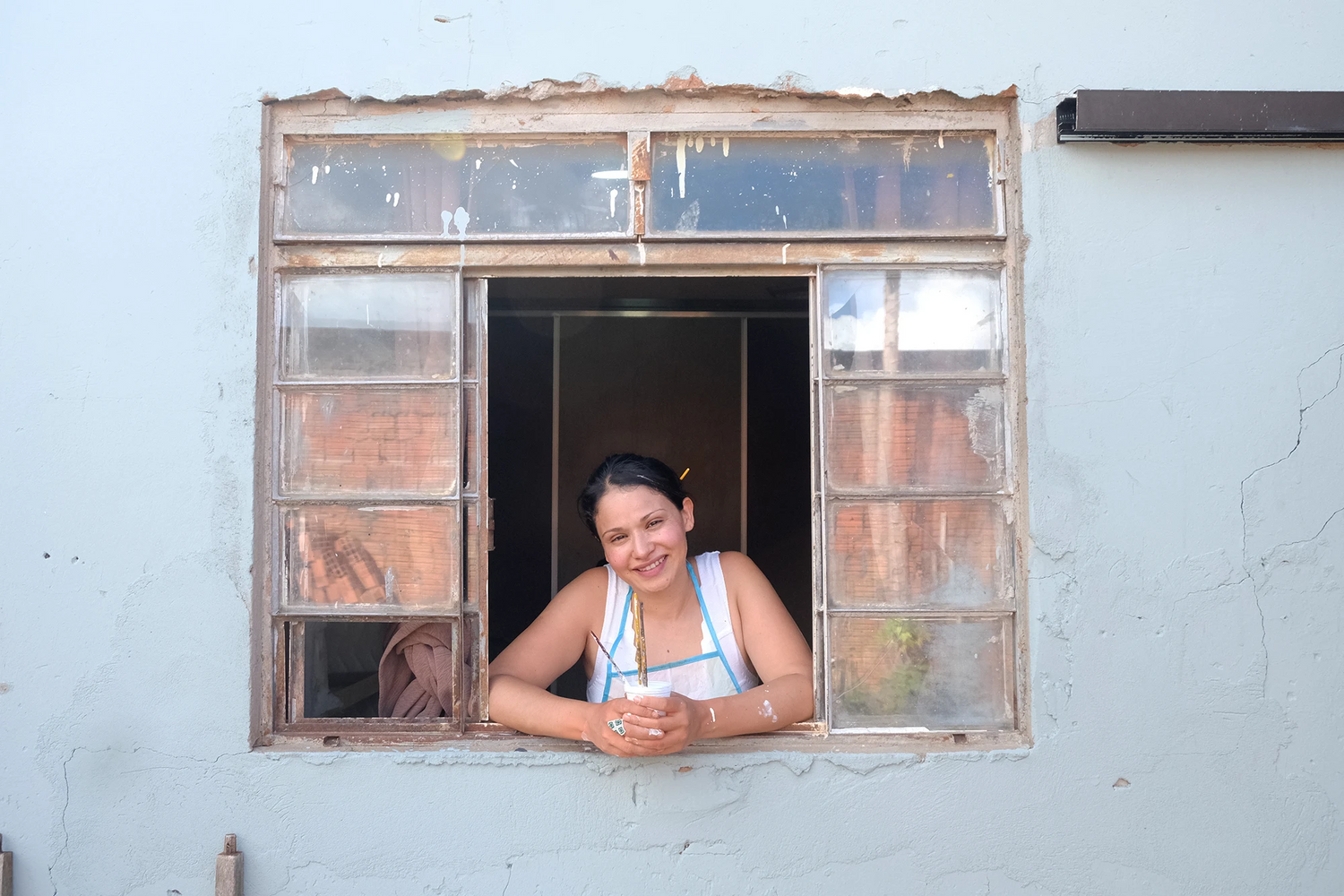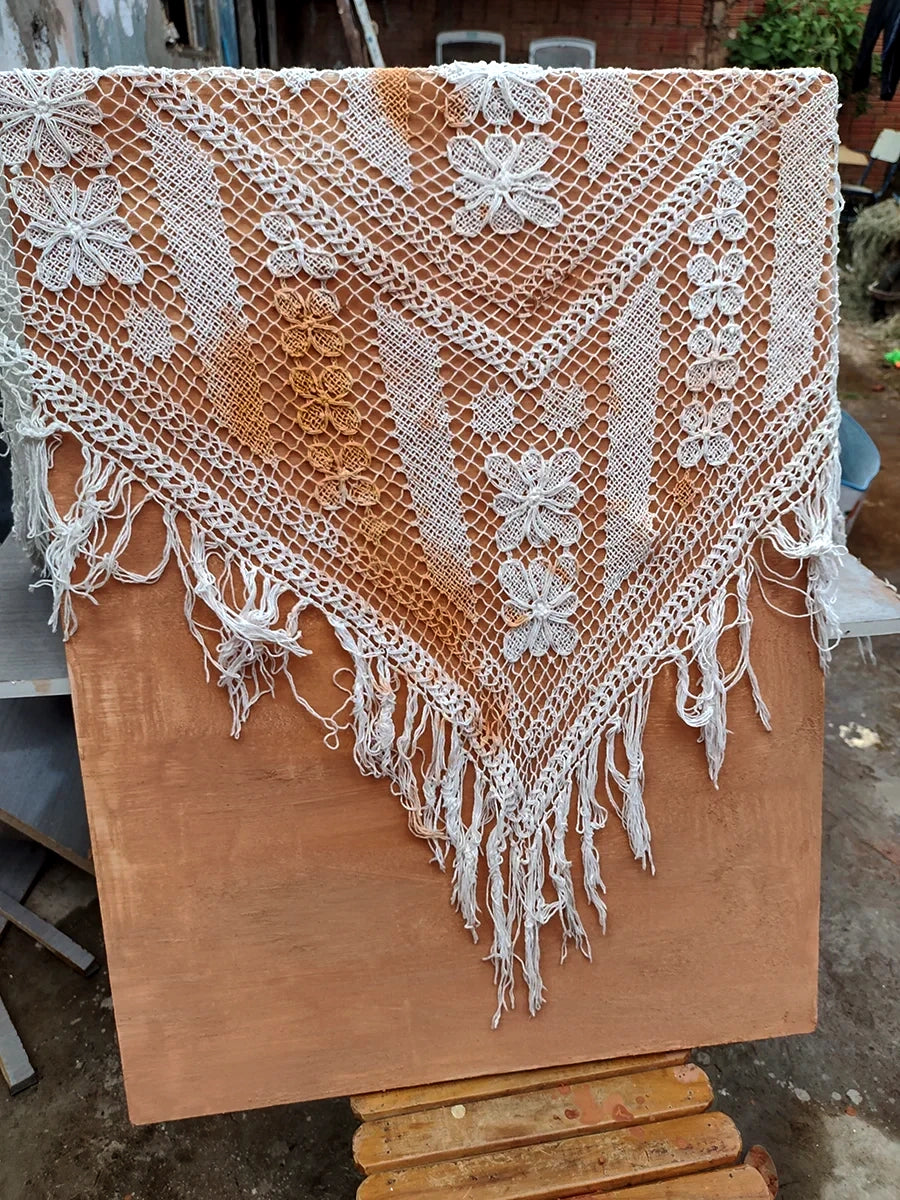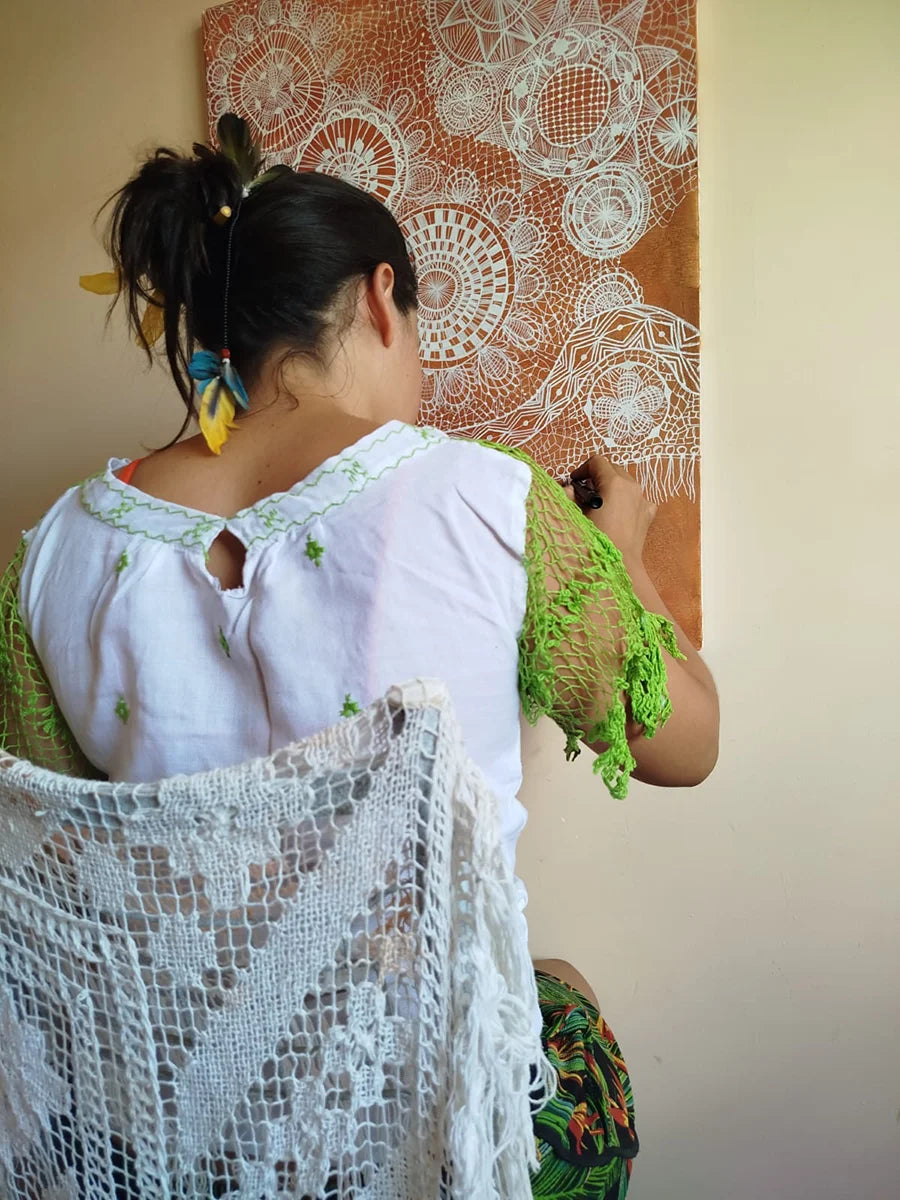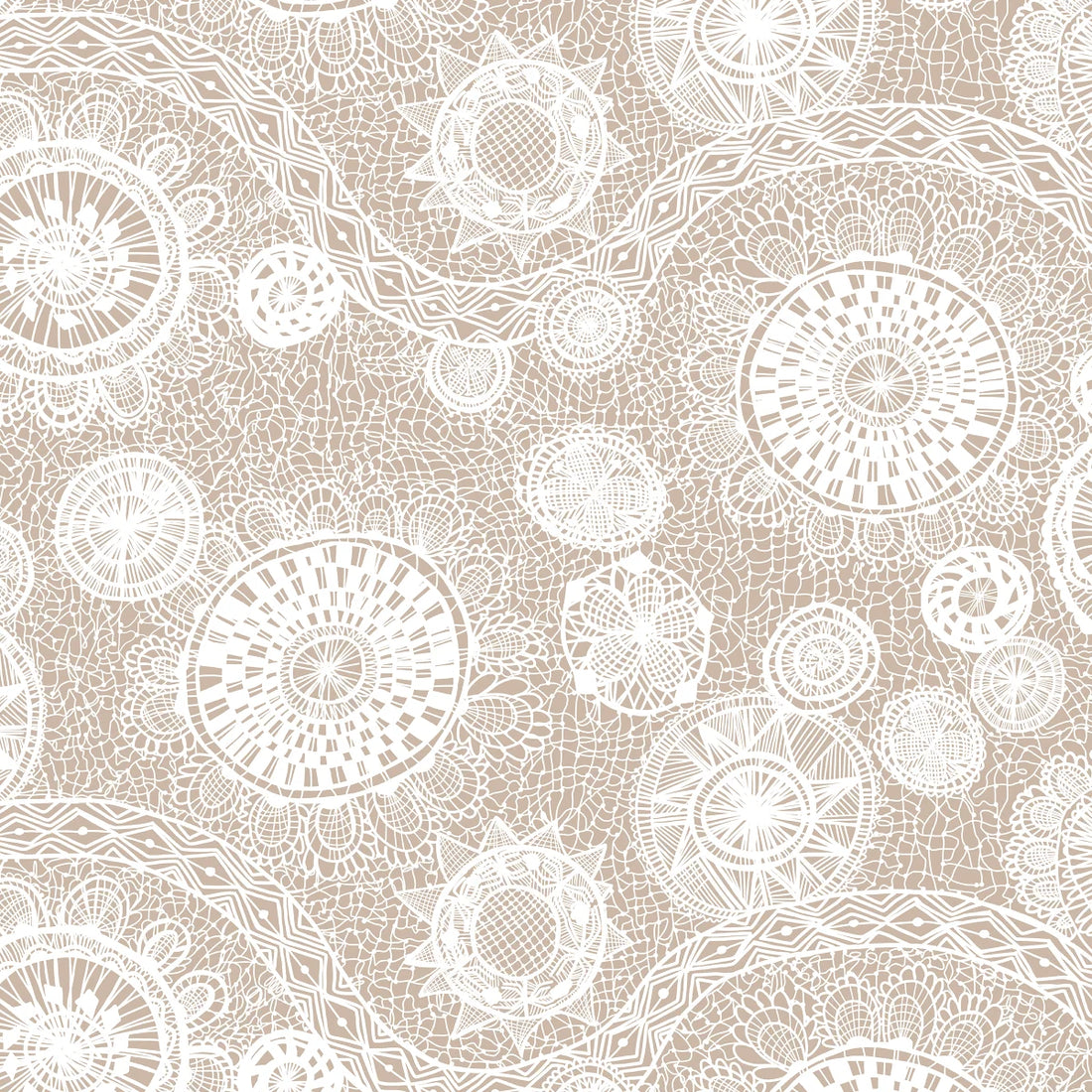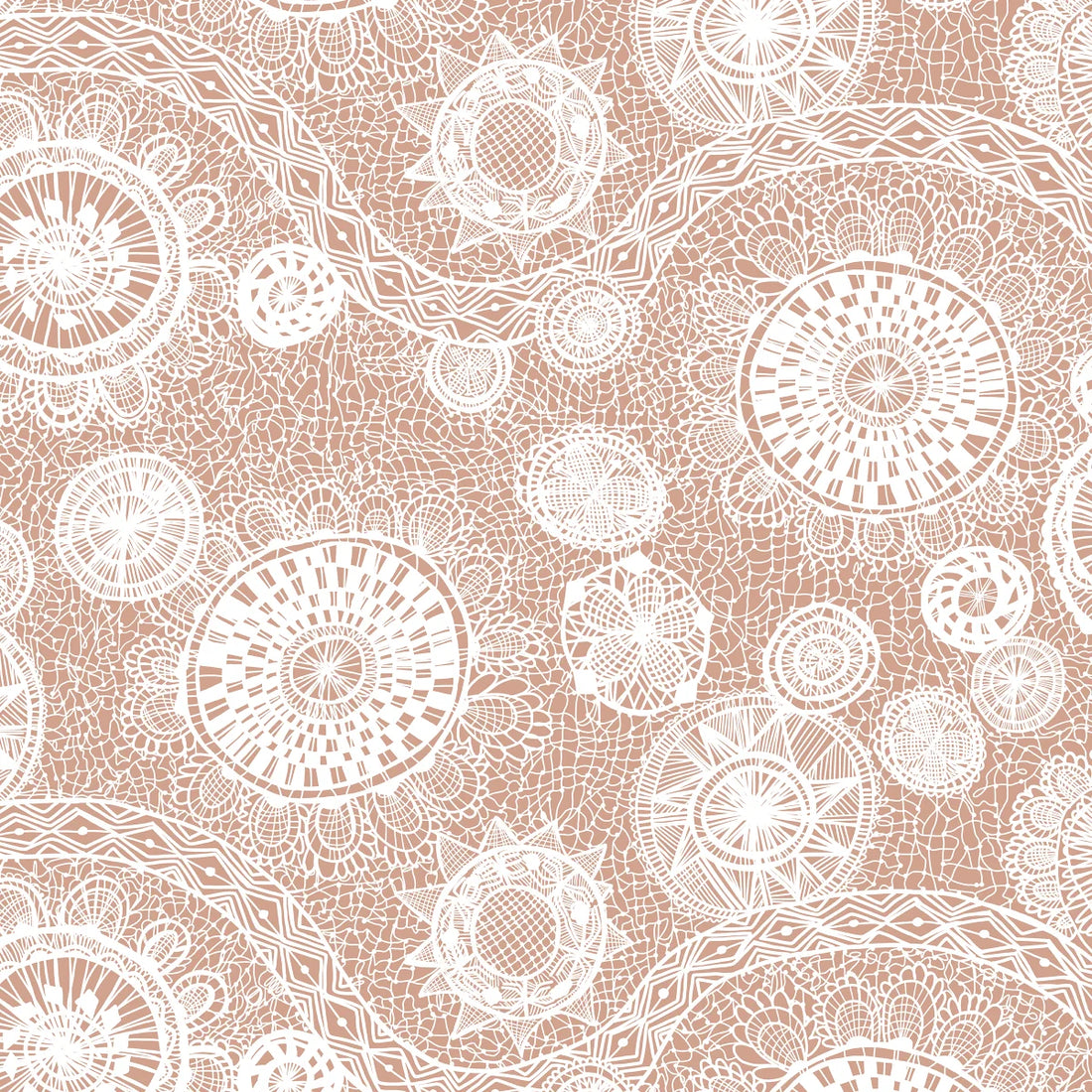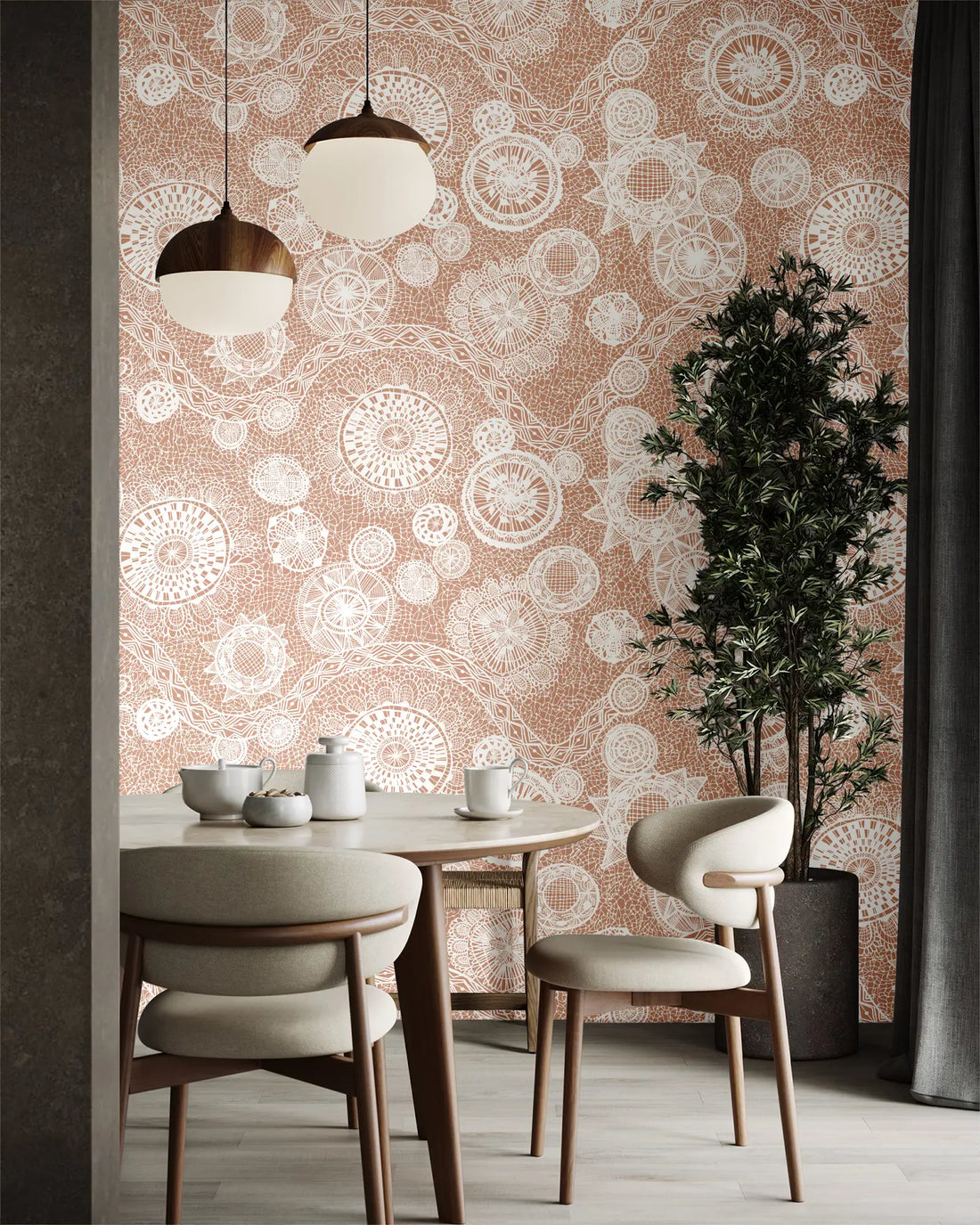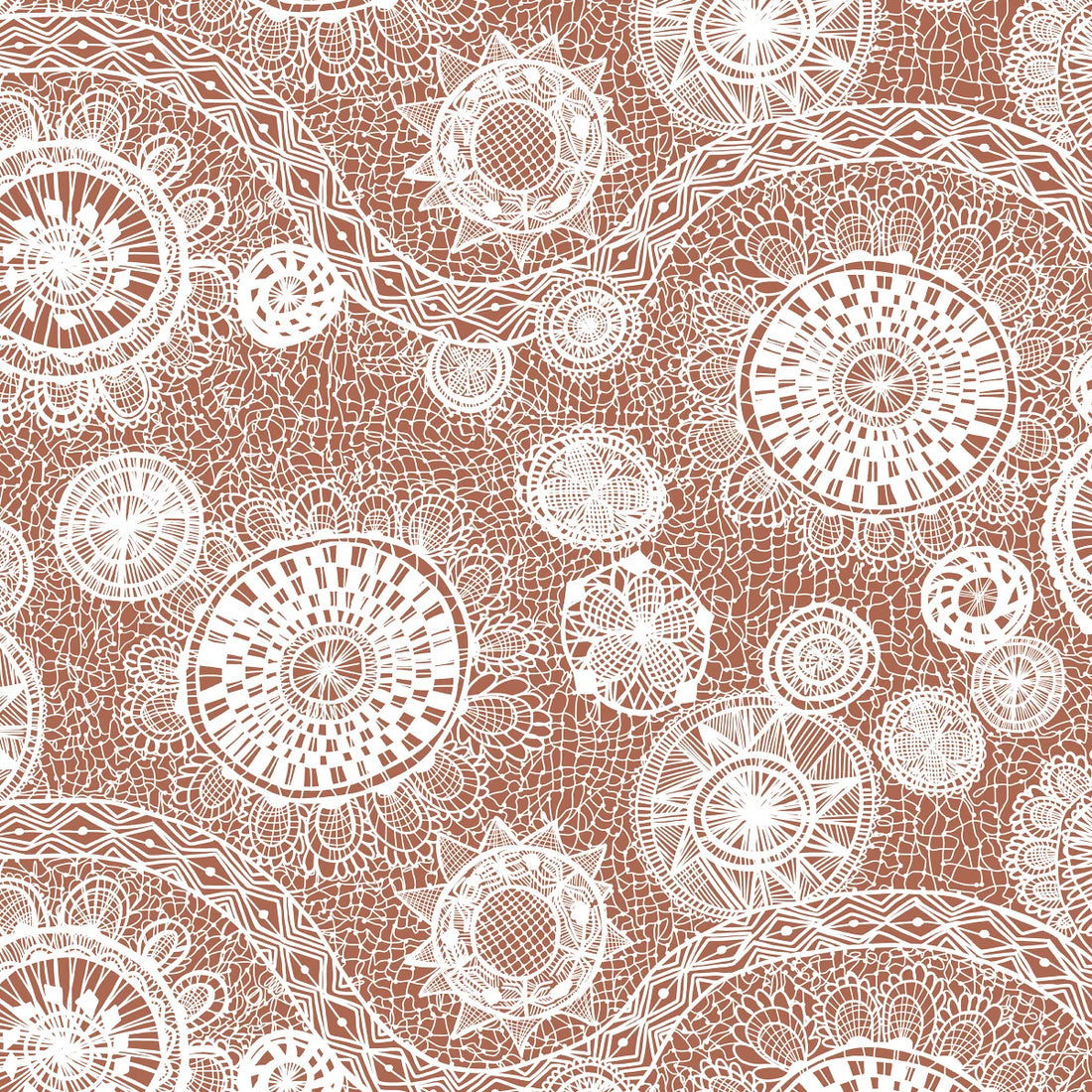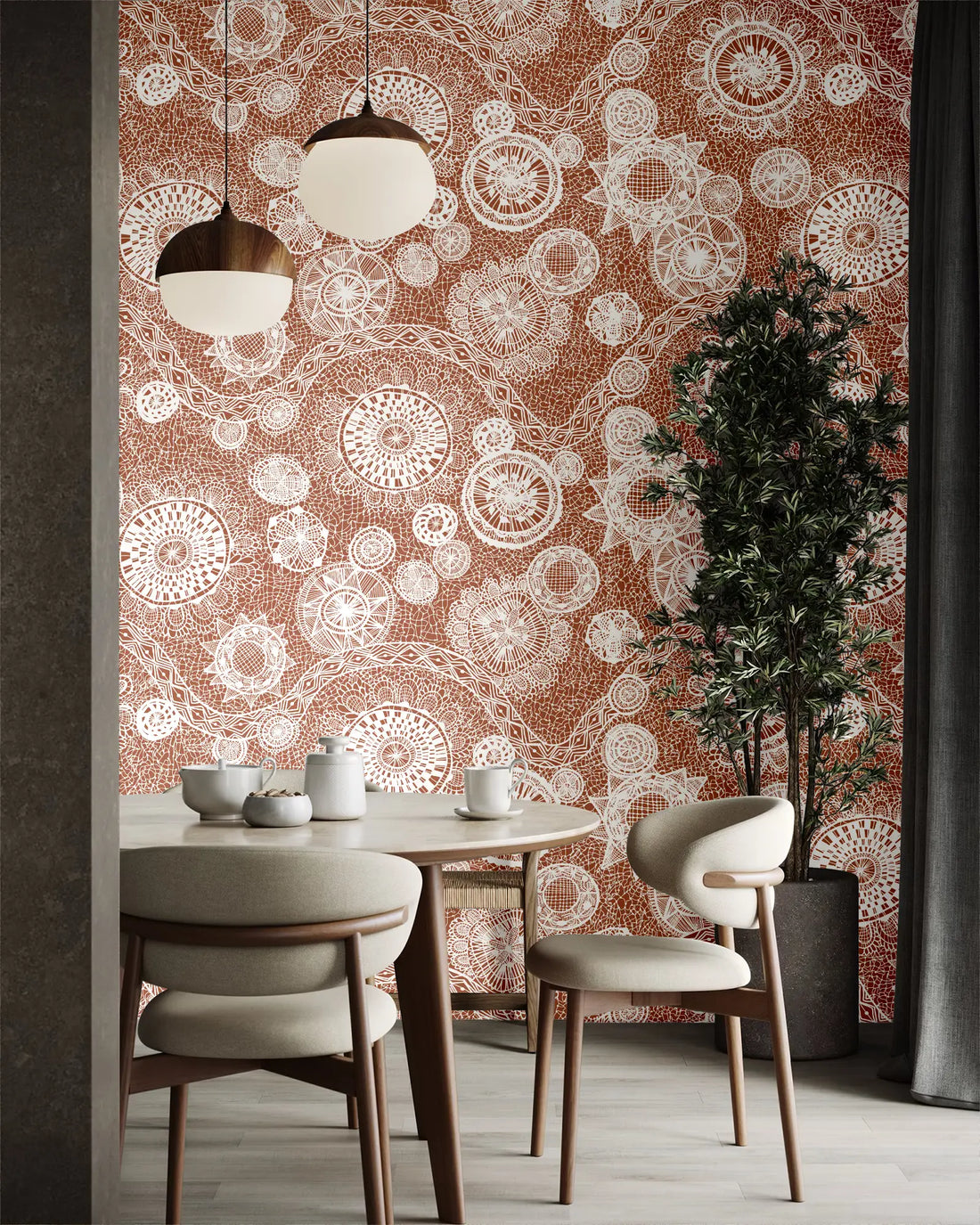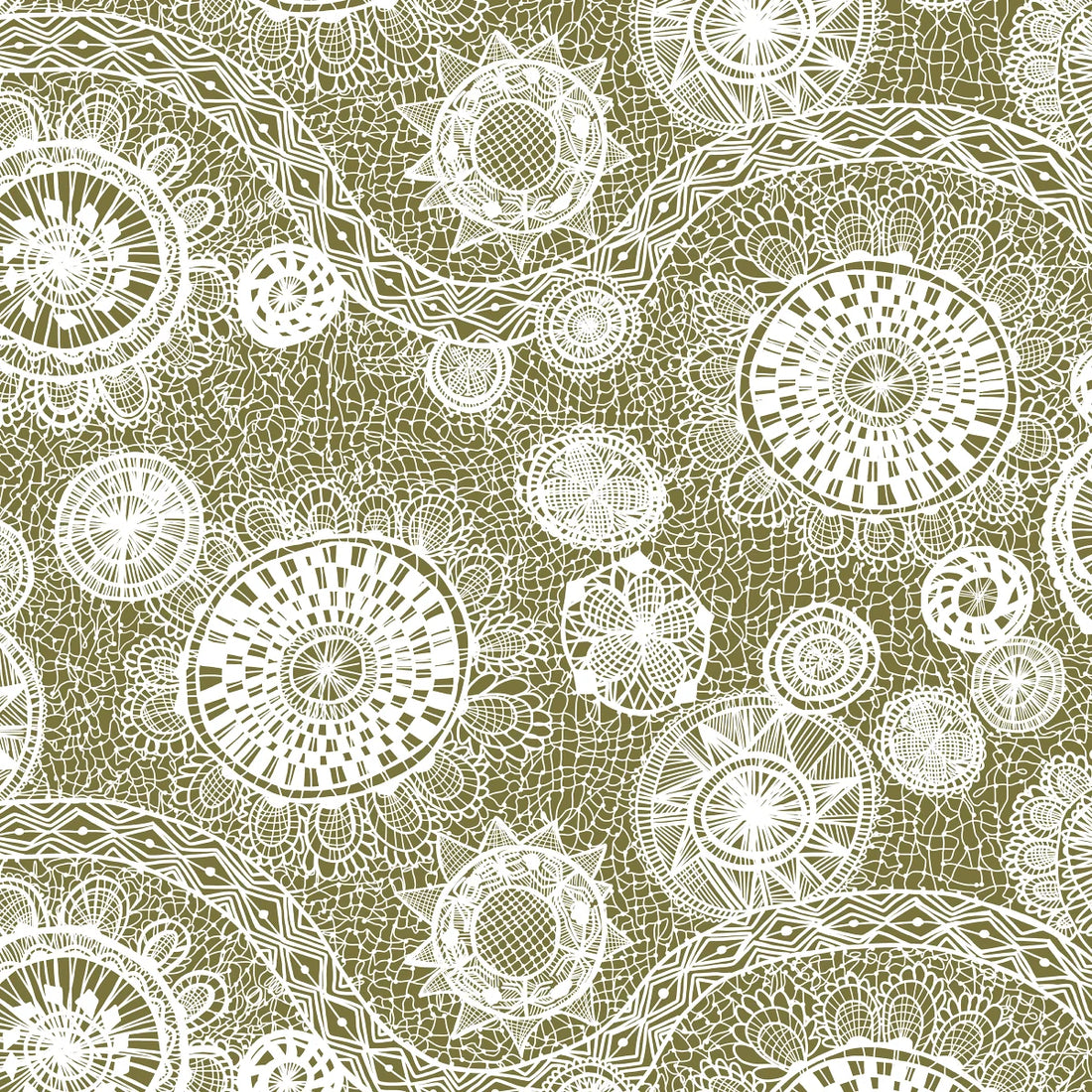“Through painting, I transmit what my ancestry has been whispering in my ear. My art gives voice to the silence of growing up between worlds and borders—whether physical or spiritual.”
MIGUELA MOURA
-
Between Branches and Borderlands
On a warm summer afternoon in Mato Grosso do Sul, Miguela Moura steps away from her artwork to help her children and nephews gather fruit from the trees in her backyard. As she reaches for the highest branches, she talks to them about the plants—naming them, sharing their uses, and passing on knowledge with the same care she brings to her art.
It’s a simple moment, but it reflects the essence of who she is: an Indigenous artist of the Guarani people, a mother, and an activist, constantly moving between the visible and the invisible, the traditional and the emerging.
"I'm a mother, visual artist, and activist for the Indigenous causes of the Guarani people," she says. "My identity comes from this union—my immigrant mother from Paraguay and my father, a native of the borderlands."
Roots and Returns
Miguela’s name honors her grandmother, a woman known for helping others. “When I was born, I received this name, and I carry it with great pride,” she says. “It’s more than a tribute—it’s a legacy.”
That legacy led her, at 19, to embark on a personal and spiritual journey in search of Yvy marãe'ỹ, the Guarani vision of a land without evil. Seven years later, she returned to her tekoha—the place where one can truly be.
“I came back to live near my family, which is a very sacred aspect of Guarani culture,” she explains. Now 28, she lives in the same house and neighborhood where she grew up. “We’re united here—my parents, siblings, children. This closeness brings teko porã—a good and beautiful life.”
-
Weaving Worlds Through Art
Miguela didn’t choose art—it was always there. “I grew up watching my father and grandfather make art, and my mother crocheting. That’s also art,” she says. As a child, she admired her older sister’s drawings and found early inspiration in the creative expressions within her own family.
Art took different forms throughout her life—from childhood sketches to high school photography. Then came motherhood, and with it, a pause. But it was the grief of losing her own mother that brought her back to art in a new, more personal way.
“Art became an escape from the pain,” she says. “Many of my works come from dreams—dreams with my mother, dreams my children had. That was the beginning of my first series and my entry into the Indigenous art movement.”
She describes her experience growing up at the border of two nations as “an imaginary tear,” one that split not just geography but language, culture, and identity. “Through painting, I can transmit what ancestry has been whispering in my ear. My art gives voice to the silence of growing up between two cultures.”
In one of her works—later adapted into wallpaper—Miguela explores the spiritual link between Guarani women and spiders. Like the spider weaving its web, she says, Guarani women are guardians of nature’s fabric, connecting the seen and unseen, past and future. The maternal figure becomes central, embodying creation, continuity, and care.
MEET MIGUELA MOURA
-
Motherhood and Activism
Motherhood, for Miguela, is inseparable from art and activism. “I have two children—my little birds,” she says. “They’re my joy and, at the same time, the sound breaking my silence. Like birds singing at the end of the day—you just stop and listen.”
Her family is both her foundation and her fuel. “They move me to try to transform what I can through art—imagining a better world, where things are different than they are now.”
This drive informs all of her work, rooted in the Guarani worldview that everything is interconnected. “We know how difficult it is for those of us who are racialized,” she says. “Every day we overcome one challenge only to face another. But we keep walking.”
-
Looking Forward
Miguela’s art is both memory and vision. Through it, she hopes to share the wisdom of her parents, her people, and the land. “I want my children to position themselves in the world in a truthful way,” she says, “truly experiencing what is here and now.”
That means knowing how to weave a garment, drink tereré, or recognize the healing properties of local plants. “This is everyday wisdom—rooted, living, and present, even when it goes unnoticed.”
Her ultimate dream is to help build a world more aligned with the Guarani ideal of harmony. “I believe that when we manifest our visions, new worlds are built—like a mother who always wants the best for her child. That’s the power I try to channel.”
In every brushstroke and story, Miguela Moura weaves past and present, silence and expression, roots and renewal. Her work is more than art—it’s an invitation to see the world as connected, alive, and full of possibility.
"I see my family as one of my greatest inspirations. They move me to try to transform what I can through art, thinking of a better world where things can be different than they are now."
MIGUELA MOURA


